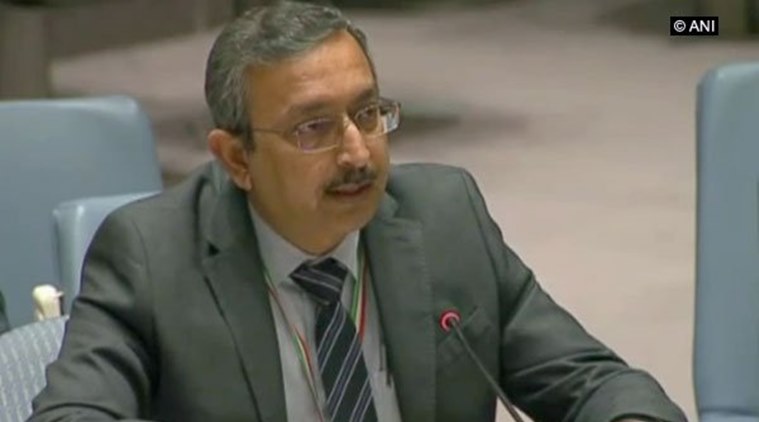 Tanmaya Lal described terrorism as one of the worst form of violation of human rights. (ANI Photo/File)
Tanmaya Lal described terrorism as one of the worst form of violation of human rights. (ANI Photo/File)
Expressing regret that the work of the Human Rights Council is getting more contentious and difficult, India has voiced its concern over instances of politicisation of human rights as a foreign policy tool.
Tanmaya Lal, India’s Deputy Permanent Representative to the UN Ambassador, said even as the Human Rights Council has been taking a number of resolutions and decisions, holding meetings frequently and focussing more on special sessions, the effectiveness of its work, however, is not always clear.
“While a very comprehensive normative framework of human rights treaties and Covenants has evolved…, the work of the Human Rights Council and its associated procedures and mandates is, regrettably, getting more contentious and difficult??,” Lal said at the UN General Assembly session on Report of the Human Rights Council Friday.
According to him, the ineffectiveness of the global governance is stopping countries to come together for any common goal, thus averting any chance to find commonly acceptable solutions.
“The reasons for many of the difficulties surrounding the discussions on the human rights agenda are not hard to find. They flow from the often very divergent priorities and concerns of member states in terms of their levels of development, social and cultural contexts and governance systems,” Lal said.
Even as the global discourse on human rights continues to evolve, capacities of socially and culturally varied nations to implement certain rights are often constrained, he said, adding that instances of politicisation of human rights and intrusiveness too remain matters of concern.
In June this year, India had rejected a report on Kashmir by then Human Rights High Commissioner Zeid Ra’ad Al Hussein’s. Hussein, in the report, had called for an independent international probe into the human rights situation in Kashmir. Lal had said that the “so-called” report reflected the “clear bias of an official who was acting without any mandate whatsoever and relied on unverified sources of information.”
Lal also described terrorism as one of the worst form of violation of human rights. In a thinly veiled reference to Pakistan, he said India has had to face repeated terrorist attacks on innocent people, emanating from beyond its borders. He added that despite terrorism being accepted as one of the topmost global challenges, any collective response put forward to tackle this menace continues to be thwarted by some.
“For the success of our collective and common cause or promoting and protecting human rights, our emphasis at the Human Rights Council and Treaty bodies, and Special Procedures and the OHCHR should not be confrontational but instead focus on achieving the desired results from a more inclusive, participatory and positive approach through dialogue and capacity building??,” he said.
With inputs from PTI